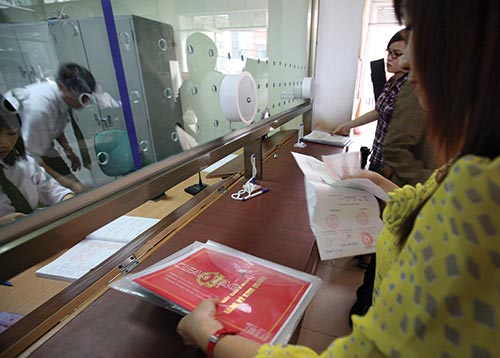New prohibited sector list to help spark business start-ups

A new list of conditional and prohibited business sectors will expectedly lead to the establishment of more firms in Vietnam
“The most important thing about the new law is the provision allowing business in any sector not prohibited by the law. We expect this will lead to a booming of new private businesses in the country,” said Bui Quang Vinh, Minister of Planning and Investment.
According to the new Law on Investment, which was approved by the National Assembly two weeks ago and is slated to take effect on July 1, 2015, the list of prohibited business sectors reduced to 6 from 51. Meanwhile, the list of conditional business sectors was reduced from 391 to 267.
While Vietnam is restructuring its economy and promoting the development of private investments, the change is said to remove obstacles for private enterprises to enter previously prohibited sectors.
“The business environment has been widened for private investors. This is also appropriate to Vietnam’s new Constitution,” said Vinh.
Although many prohibited sectors were cut, investors remain worried about administrative burdens that have deterred them for doing business for years.
“While we applaud the new law going from a positive list to a negative list approach for prohibited investments, we hope the duplicated steps required to get a business licence do not add to delays and administrative burdens for foreign investors,” Virginia B. Foote, co-chairwoman of the Vietnam Business Forum, said.
Le Net, a partner at law firm LNT & Partners, admitted the cut in prohibited investments and conditional businesses would make the business environment in Vietnam better. Additionally, he said the simplification of investment certificate granting procedures would certainly benefit all foreign investors when doing business in Vietnam.
“Those foreign investors interested in 267 so-called “conditional” projects continue to face obstacles,” said Net.
Net said conditional projects would still be subject to restrictions such as credit institutions, printing, mining, or education and healthcare sectors. These conditional projects often include services mentioned under the World Trade Organisation roadmap, but exclude retail and distribution.
“It is also unclear how the economic-needs-test will fit into the new Law on Investment,” said Net.
What the stars mean:
★ Poor ★ ★ Promising ★★★ Good ★★★★ Very good ★★★★★ Exceptional
Latest News
More News
- Hermes joins Long Thanh cargo terminal development (February 04, 2026 | 15:59)
- SCG enhances production and distribution in Vietnam (February 04, 2026 | 08:00)
- UNIVACCO strengthens Asia expansion with Vietnam facility (February 03, 2026 | 08:00)
- Cai Mep Ha Port project wins approval with $1.95bn investment (February 02, 2026 | 16:17)
- Repositioning Vietnam in Asia’s manufacturing race (February 02, 2026 | 16:00)
- Manufacturing growth remains solid in early 2026 (February 02, 2026 | 15:28)
- Navigating venture capital trends across the continent (February 02, 2026 | 14:00)
- Motivations to achieve high growth (February 02, 2026 | 11:00)
- Capacity and regulations among British areas of expertise in IFCs (February 02, 2026 | 09:09)
- Transition underway in German investment across Vietnam (February 02, 2026 | 08:00)
















 Mobile Version
Mobile Version